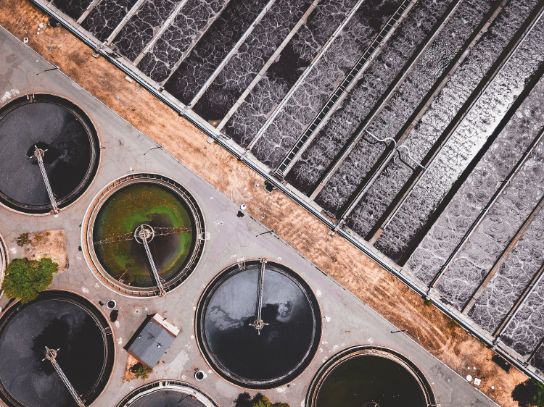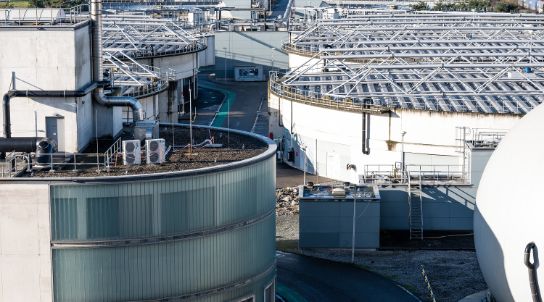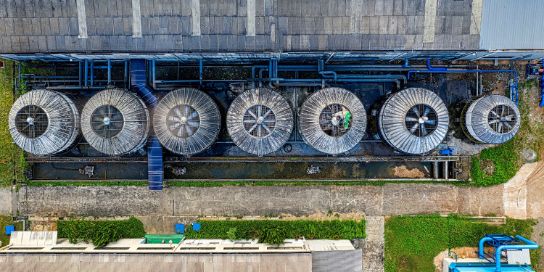Emission Impact Controller

Emission Impact Controller
The Emission Impact Controller (EIC) provides insight into greenhouse gas emissions at treatment plants. This helps effectively minimise emissions, in line with sustainability goals.
Challenge: carbon-neutral
Water authorities face an enormous challenge. They want to reduce their greenhouse gas emissions by 49% before 2030; and by 2050, they want to be carbon-neutral. At the same time, discharge standards still need to be met. This calls for better control of greenhouse gas emissions, which requires insight.
Read here more about the relatively unknown greenehouse gas: nitrous oxide.
1.jpg)
Greenhouse gas emissions
The EIC helps water authorities get a grip on greenhouse gas emissions at sewage treatment plants (STPs). Greenhouse gases – namely, carbon dioxide (CO2), methane (CH4) and nitrous oxide (N2O) – are produced by STPs at various points in the treatment process. The EIC uses measurements, mass balances, and models that predict greenhouse gas emissions – all to provide an integrated picture of the greenhouse gases’ footprint. This is done in the EIC dashboard.

Modelling nitrous oxide
Nitrous oxide in particular is a major problem. The effect of 1 kg of nitrous oxide emissions is equal to 273 kg of carbon dioxide emissions. Nitrous oxide emissions are difficult to prevent, as various biological processes produce them.
We use machine learning for these calculations, together with an experienced partner who specialises in nitrous oxide modelling. The model makes it possible not only to make predictions, but also to generate insight into which process conditions are relevant.

Insight
The EIC gives process technicians and operators insight through:
- A model of direct greenhouse gas emissions from the water line (nitrous oxide, methane and carbon dioxide);
- Links between process conditions and nitrous oxide emissions;
- Suggestions for optimising process control to minimise greenhouse gas emissions.
This helps work towards a carbon-neutral 2050!

Why the Emission Impact Controller?

Accurate
Accurate nitrous oxide modelling is unique and avoids unnecessary measurements.

Insight provides support
Insight into underlying causes helps in deciding which measures to take.

Financially advantageous
This software solution is cheaper than having to pay for greenhouse gas emissions.
Want to know more?
Erwin is passionate about developing digital solutions to optimise complex processes and make them more sustainable.



